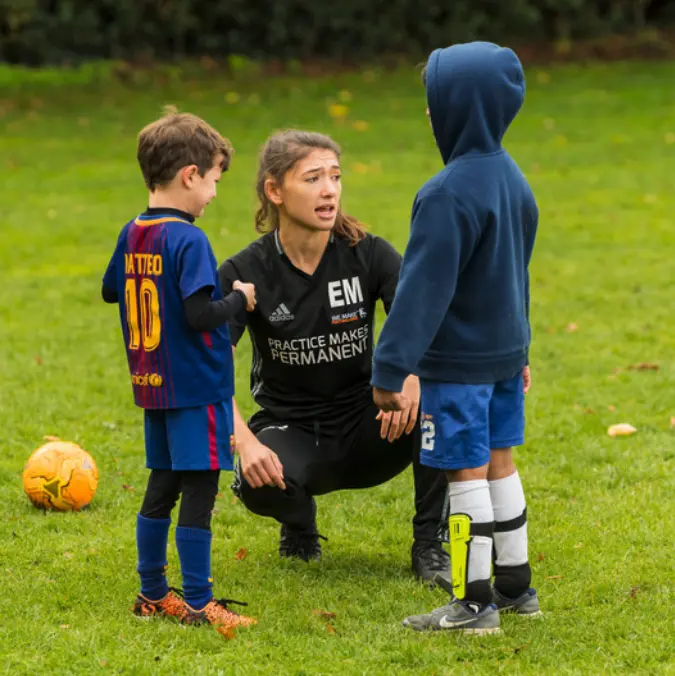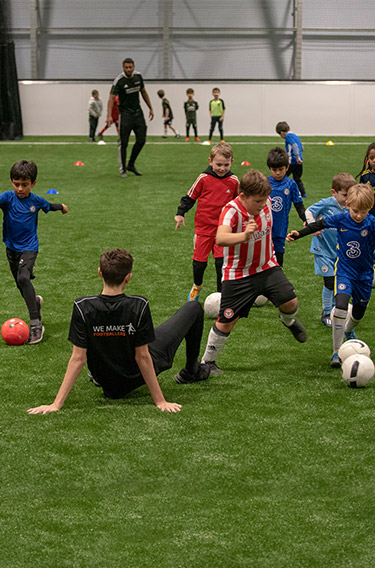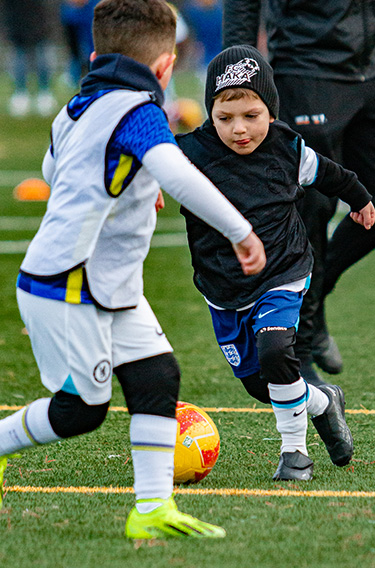Primary School plays such an important role in a child’s development as it is from the age of 5 to 11 that they will be introduced to new activities and challenged on a daily basis through the learning of academic and social fundamentals. Sport and physical activity play a monumental role in their education. With Physical Education (PE) being compulsory at every Key Stage of the UK curriculum from ages 4-16 and recreational periods often involving a number of physical activities, sports or games, a child is continuously learning to control their body and develop key skills such as balance, strength, coordination, movement, speed or agility.
Although each school determines the time devoted to PE, the national guideline recommends pupils should be provided with a minimum of 2 hours per week. This excludes sports activities and training that may be offered by the school in breakfast, lunch or after-school clubs. These additional activities are clubs that often provide new pathways and opportunities for development for the pupils of the school. In this article, we’ll explore the place of football and football training in primary schools to understand the different options that may be available to you and your child.
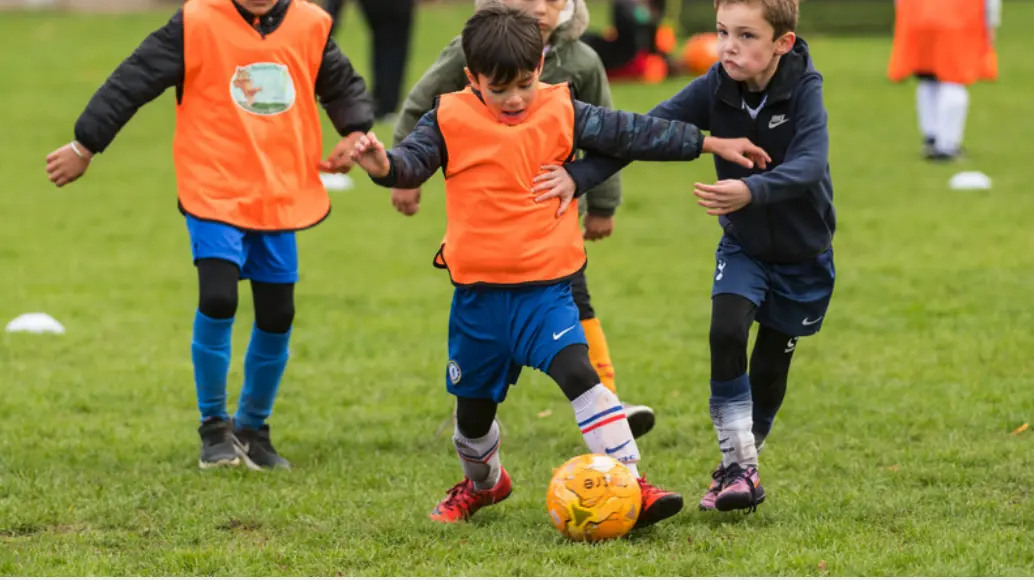
1 - WHEN WILL MY CHILD START PLAYING FOOTBALL AT SCHOOL?
Every child has a unique football journey and they will develop as a player in their own way through their decisions and interactions with the sport.
It may be that your child is already “football-mad” and attends professional football coaching outside of school or plays with a local team. In this eventuality, the likelihood of your child participating in playground football, school teams and football clubs naturally increases as they will be comfortable and confident to take part.
If your child is a beginner, then the playground can be a great place to start (as long as these impromptu games are being monitored by PAs and Teachers). For a new footballer, breakfast/lunch/after-school clubs are an ideal environment to boost their self-confidence and increase their contact time with the sport. These clubs are focused on the enjoyment levels and encouragement of pupil participation in the activity, regardless of ability.
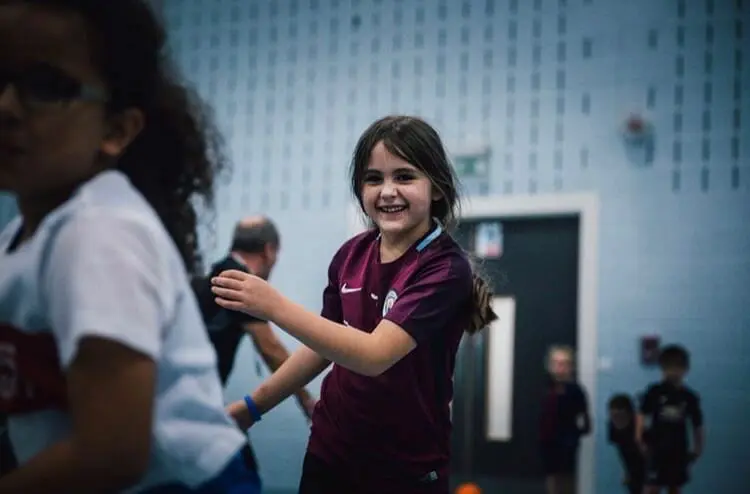
2 - HOW OFTEN SHOULD MY CHILD PLAY FOOTBALL AT PRIMARY SCHOOL?
As mentioned above, there are usually different opportunities for your child to take part of football (depending on the school), these could be: PE class, School Team, Activity Clubs or Break. Based on this it really comes down to your child and how much they enjoy the sport and are interested in playing it.
PE class: the PE curriculum may vary and it is best to speak with the teacher to find out what their planned sports are for the year.
School Teams: these can be seasonal and vary depending on the popularity of football within your school. Teams most often have a match day and 1-2 football training sessions per week in addition to the basic curriculum.
Activity Clubs: these come in the format of Breakfast, Lunch or After-School football clubs and these could take place from 1-5 times a week. The training provided will often focus on enjoyment levels, game time and group development. However, the frequency these are held varies based on the school and your child may not be able to attend all sessions based on their timetable.
Break: playground football is a fundamental part of any player’s journey and can create some of the most lasting friendships and memories. There’s not much controlling of the amount your child could be playing playground football, but if they are enjoying it, it could be as much as every single day!
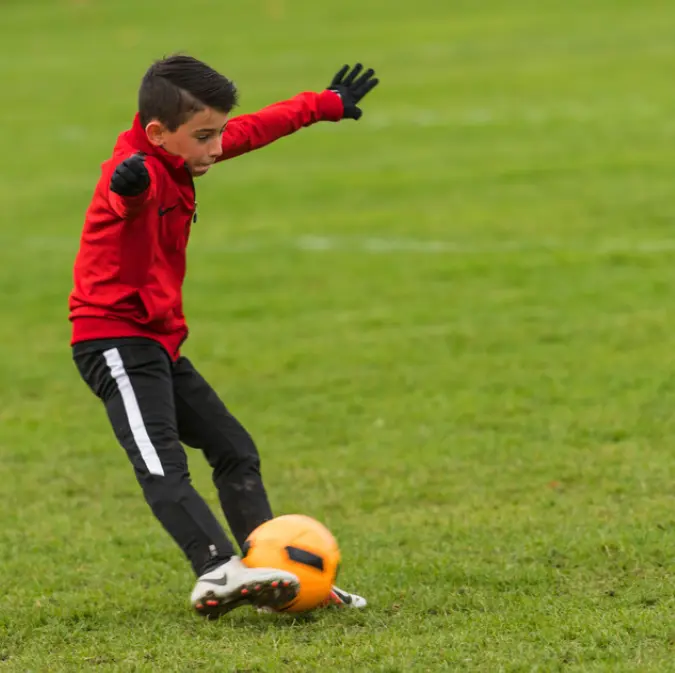
3 - WHAT ARE THE SOCIAL BENEFITS OF ENCOURAGING MY CHILD TO PLAY MORE FOOTBALL AT PRIMARY SCHOOL?
Football is a group sport and enables children to come together to have fun and enjoy the game. There are many social benefits to taking part in football for primary school children as they will develop their soft skills without even realising it! They are often so consumed in playing and concentrated on ball that they will become comfortable around large groups. Additionally, coaches at training are always encouraging players of all abilities to have fun and enjoy the sport and aim to see that no-one gets left out.
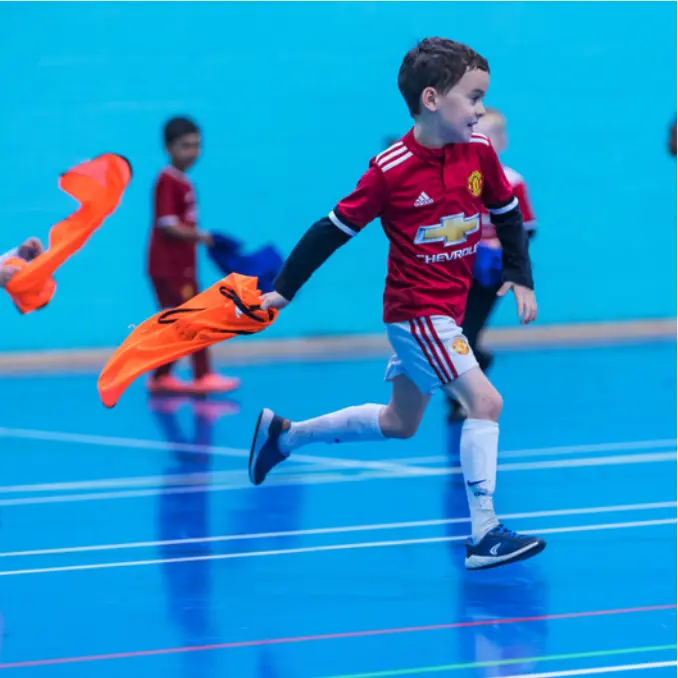
4 - BREAKFAST, LUNCH AND AFTER-SCHOOL CLUBS - WHY DO THEY TAKE PLACE AND CAN THEY BE BENEFICIAL TO THE DEVELOPMENT OF MY CHILD?
The benefit of Breakfast/Lunch/After-School clubs is that they are a supplement to the core education your child will receive and afford them an extra opportunity to pursue one of their interests. Depending on the quality of the club, they will provide your child a fantastic chance to develop their footballing activity within the school-week and hours through football training sessions. This extra-practice and coaching can make a significant difference to any player at any age. Another great benefit to participating in a football club is that they may meet new friends as these are often open to the whole student body.
These clubs will massively vary depending on each school, the popular interests of the student body and the school’s partnerships with external coaching providers. Some clubs are managed by the school and staff, however, a large majority are outsourced and managed by an external coaching provider. This is common-practice and schools will have an extensive safeguarding and safety-netting procedure before choosing the provider, however, the quality of the service may vary. The benefit of these clubs is that they are accessible to the whole student body and often provide an affordable opportunity for children to receive excellent football coaching and training.
The majority of primary schools will hold football sessions in various formats due to its natural popularity with students and its ability to bring large groups together. Football is a great way to encourage participation rate in sports and physical-activity. There are many social skills that children can develop through playing football at school such playing with new and existing friends. Coaches in primary schools will have a focus on ensuring that players are participating, engaged and having fun. Primary School is such an important phase of a child’s education and football can have a positive impact leaving them with lasting memories.
